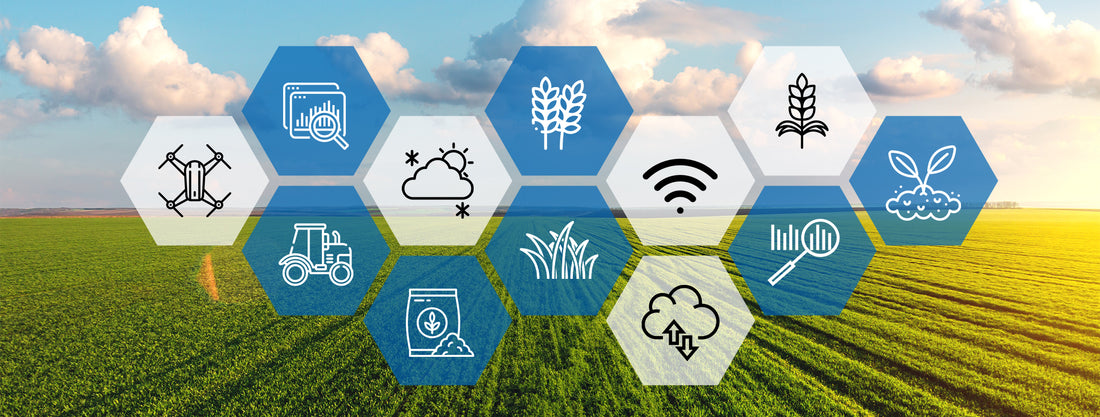In the vast expanse of modern agriculture, a silent revolution is sweeping through farms, big and small, worldwide. Traditional cultivation methods no longer bind today's farmers; instead, precision agriculture is taking the reins. What's transforming agriculture isn't just agricultural machinery but precise technology and innovation. If you've purchased our F100 Auto Steer System, you've taken the first step toward the journey of the precision agriculture revolution.
In this blog, we will explore the world of precision agriculture from the perspectives of sustainable agricultural development and farmers' quality of life. Whether you're an experienced farmer or a newcomer looking to join precision agriculture, let's explore why you joined.
WHAT IS PRECISION AGRICULTURE?
It is simple and easy to understand. Precision agriculture is about selecting the right crops and providing suitable nutrients to the crops at the right place and time. At its core, precision agriculture is data-driven, involving a wealth of data on critical factors ranging from soil conditions to weather patterns, crop performance, and more. Through meticulous data analysis, farmers can get valuable insights. Based on this data, farmers can make informed decisions about planting, irrigation, and harvesting. This data-driven approach to agriculture enhances efficiency and reduces guesswork, making outcomes more predictable.

HOW DOES THE IMPLEMENTATION OF PRECISION AGRICULTURE EFFECTIVELY PROMOTE SUSTAINABLE AGRICULTURAL DEVELOPMENT?
Increasing crop yield and efficiency
Precision agriculture enables farmers to maximize crop yield and production efficiency through advanced technologies such as GPS, sensors, satellite imagery, and drones. With data, farmers can have a thorough understanding of their fields. They can customize cultivation methods for each unique piece of land to optimize crop production, ensuring every acre is utilized to its fullest potential, bringing substantial return on investment for farmers.

Environmental sustainability and resource conservation
An important aspect of precision agriculture is its commitment to environmental sustainability and resource conservation. By precisely determining when and where resources are needed, farmers can significantly reduce their environmental impact. For example, precise application of fertilizers and pesticides can minimize runoff and pollution. Accurate and efficient irrigation systems can ensure water conservation. This sustainability in precision agriculture conserves the environment, making the entire process more sustainable and ecologically friendly.
How does the implementation of precision agriculture contribute to an improved quality of life for farmers?
Reduced costs
Precision agriculture isn't just about increasing yields; it's also an effective cost management strategy. By leveraging data-driven insights, farmers can monitor fields and precisely apply the optimal nutrients, water, and pesticides needed for optimal growth. This helps reduce the waste of fertilizers, water, and pesticides, lowering production costs. Most precision agriculture equipment is highly adaptable and automated, reducing the wear and tear of machinery in agricultural production. For instance, the F100 Auto Steer System can be adapted to many older tractors, reducing wear and tear during field operations, prolonging equipment lifespan, and lowering maintenance and replacement costs.
Improved quality of life
By automating many labor-intensive tasks, precision agriculture technology enables farmers to work more efficiently, relieving physical and mental burdens and allowing more leisure and family time. As a result, farmers can better balance work and life. Furthermore, precision agriculture also helps create a safer working environment. For example, by using drones to monitor crops, farmers can reduce their exposure to hazardous chemicals, minimizing the risk of farm accidents.

Final Thoughts
In conclusion, precision agriculture is a crucial agricultural revolution. By embracing precision agriculture, farmers gain endless possibilities, from increasing yield and resource efficiency to reducing costs and data-driven decision-making. Precision agriculture has the potential to fundamentally transform agricultural production, improving the lives of farmers worldwide. This journey is toward a more sustainable, profitable, and balanced future for farmers and the entire agricultural industry.

